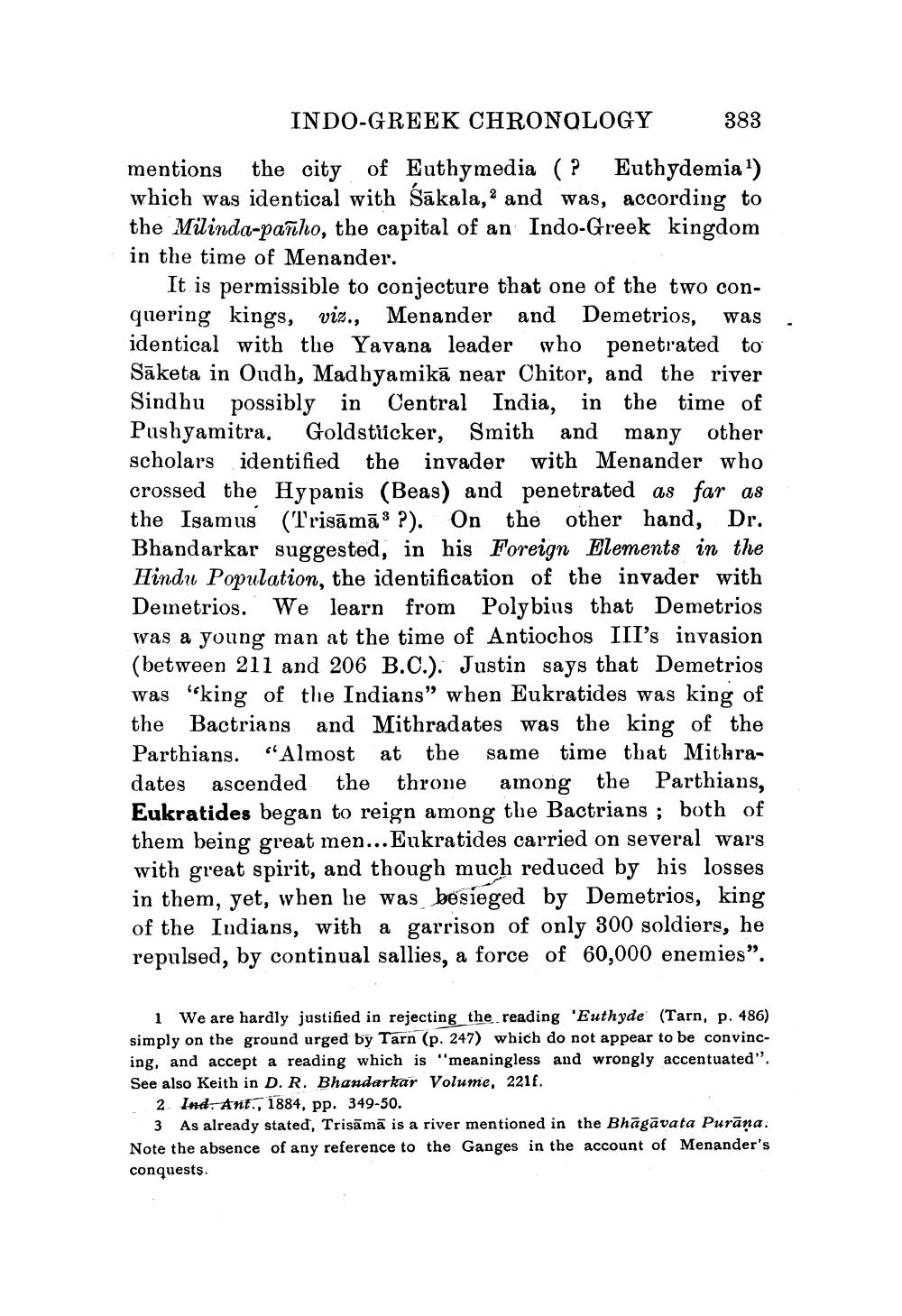________________
INDO-GREEK CHRONOLOGY 383 mentions the city of Euthymedia (? Euthydemia ) which was identical with Śākala, 2 and was, according to the Milinda-panho, the capital of an Indo-Greek kingdom in the time of Menander.
It is permissible to conjecture that one of the two conquering kings, viz., Menander and Demetrios, was. identical with the Yavana leader who penetrated to Sāketa in Oudh, Madhyamikā near Chitor, and the river Sindhu possibly in Central India, in the time of Pushyamitra Goldstiicker, Smith and many other scholars identified the invader with Menander who crossed the Hypanis (Beas) and penetrated as far as the Isamus Trisāmās ?). On the other hand, Dr. Bhandarkar suggested, in his Foreign Elements in the Hindu Population, the identification of the invader with Demetrios.' We learn from Polybius that Demetrios was a young man at the time of Antiochos III's invasion (between 211 and 206 B.C.). Justin says that Demetrios was "king of the Indians” when Eukratides was king of the Bactrians and Mithradates was the king of the Parthians. "Almost at the same time that Mithradates ascended the throne among the Parthians, Eukratides began to reign among the Bactrians ; both of them being great men... Eukratides carried on several wars with great spirit, and though much reduced by his losses in them, yet, when he was besieged by Demetrios, king of the Indians, with a garrison of only 300 soldiers, he repulsed, by continual sallies, a force of 60,000 enemies”.
1 We are hardly justified in rejecting the reading 'Euthyde (Tarn, p. 486) simply on the ground urged by Tarn (p. 247) which do not appear to be convincing, and accept a reading which is "meaningless and wrongly accentuated". See also Keith in D. R. Bhandarkar Volume, 2218.
2 Ind. Ant., 1884, pp. 349-50.
3 As already stated, Trisāmā is a river mentioned in the Bhāgāvata Purāna. Note the absence of any reference to the Ganges in the account of Menander's conquests.




